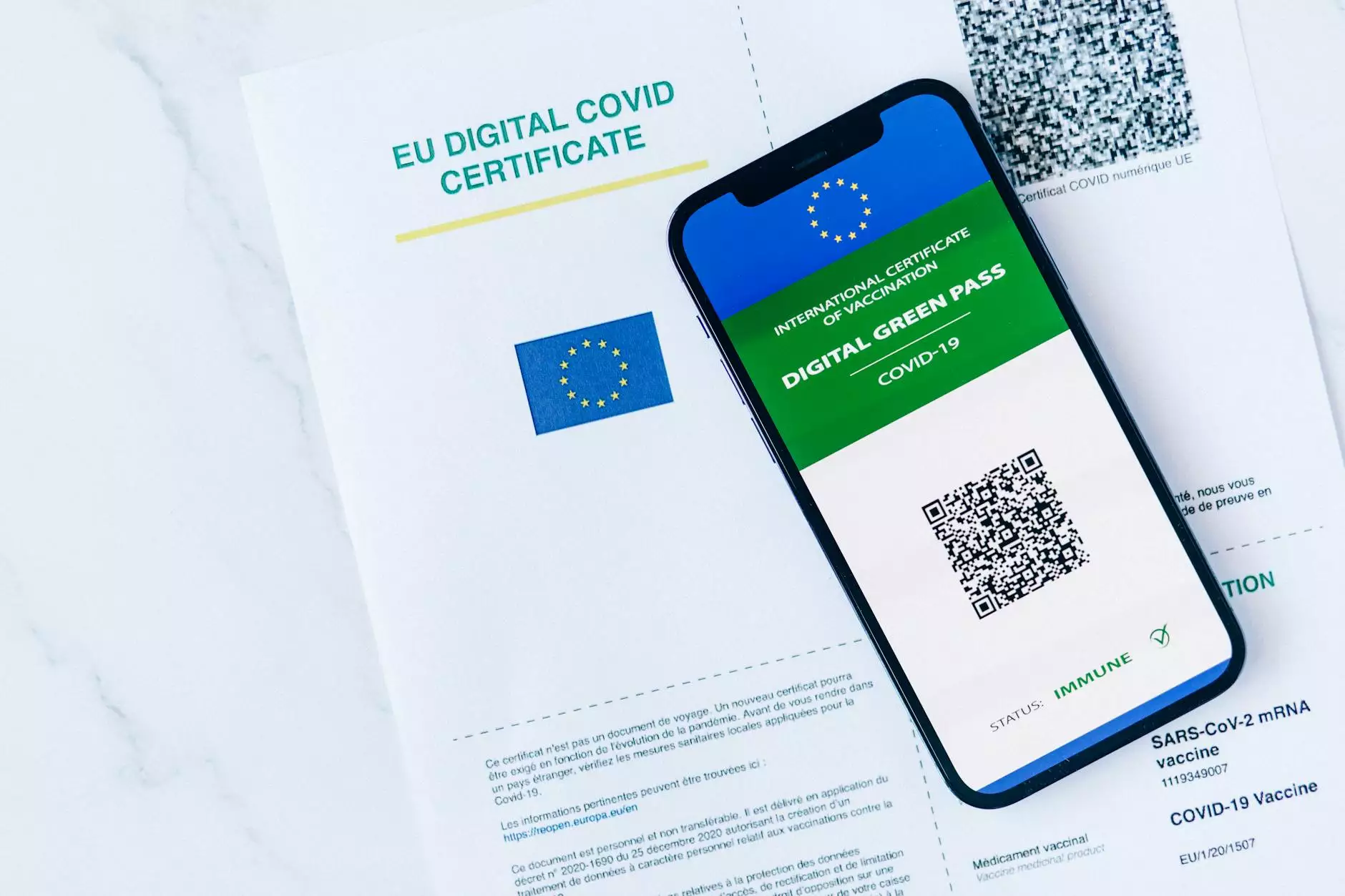Understanding Counterfeit Certificates: Implications and Impact on Business

In today's competitive landscape, the value of a legitimate credential cannot be understated. Counterfeit certificates pose a significant threat to educational integrity and professional services, affecting individuals and businesses alike. In this article, we will delve deep into the world of fake diplomas and certificates, exploring their impact on various sectors and how to navigate these challenges effectively.
The Rise of Counterfeit Certificates
With the increasing demand for education and professional qualifications, the market for counterfeit certificates has surged. Individuals seeking to fast-track their careers may opt for these fraudulent documents, which can lead to severe consequences. The availability of online resources makes it easier than ever for scammers to produce convincing fake credentials.
Why Do People Purchase Counterfeit Certificates?
There are several reasons why individuals may choose to buy fake diplomas:
- Career Advancement: Some individuals believe that possessing a degree or certification they didn't earn will help them secure better job opportunities.
- Financial Pressure: In a competitive job market, some people feel the need to resort to shortcuts due to financial stress or lack of access to education.
- Social Expectations: Society often places a heavy emphasis on formal education, making it difficult for those without degrees to find respect or credibility in their fields.
Implications of Counterfeit Certificates in Education
The impact of counterfeit certificates within the education sector is profound. These fake documents undermine the value of legitimate degrees and wreak havoc on educational institutions.
Effects on Educational Institutions
When counterfeit certificates become commonplace, educational institutions face several challenges:
- Loss of Reputation: Schools and universities may find their credibility jeopardized when employers employ individuals with fake credentials issued in their name.
- Decreased Trust: Students and faculty may lose trust in the institution's programs if fraudulent qualifications are prevalent.
- Increased Compliance Costs: Institutions may be forced to invest more in verification systems to combat fraud, diverting resources from education.
Effects on Students
For students, purchasing counterfeit certificates can have devastating effects:
- Legal Consequences: Obtaining and using fake credentials can lead to legal actions, including fines and imprisonment.
- Job Loss: If an employer discovers a fraudulent certificate after hiring, it often results in immediate termination.
- Damage to Reputation: Being associated with counterfeit documentation can tarnish one's professional reputation for a lifetime.
Impact on Professional Services
The ramifications of counterfeit certificates extend beyond education into various professional services sectors, including healthcare, engineering, and finance. These sectors rely heavily on verified qualifications to ensure competence and safety.
Healthcare Sector Risks
In healthcare, the stakes are incredibly high. Employing professionals without valid credentials can endanger lives. Consider the following:
- Patient Safety: Healthcare workers must possess the necessary skills and knowledge; a counterfeit certificate can put patients at risk.
- Legal Liability: Organizations that hire unqualified personnel face increased liability and the potential for lawsuits.
- Regulatory Consequences: Healthcare providers may face penalties from regulatory bodies for hiring unqualified staff.
Financial Sector Vulnerabilities
Similarly, in the financial sector, the ramifications of employing individuals with false credentials are significant:
- Fraud and Embezzlement Risks: Individuals without genuine qualifications may engage in unethical practices, leading to financial losses.
- Trust Erosion: Clients must trust their financial advisors; counterfeit certificates erode this foundation of trust.
- Compliance Issues: Financial institutions are held to strict regulatory guidelines, and hiring unqualified staff can lead to severe penalties.
How to Combat Counterfeit Certificates
Addressing the issue of counterfeit certificates requires a multifaceted approach. Here are some effective strategies for combating this growing problem:
For Educational Institutions
Educational institutions can take proactive measures to fight against the proliferation of counterfeit certificates:
- Implement Verification Programs: Establish systems for verifying the authenticity of degrees and diplomas presented by applicants.
- Educate Students: Raise awareness among students about the risks associated with obtaining counterfeit credentials.
- Partner with Employers: Collaborate with businesses to create a standard for verifying educational credentials.
For Employers
Employers have a crucial role in mitigating the risks of counterfeit certificates:
- Robust Screening Processes: Implement comprehensive background checks to verify educational qualifications before hiring.
- Encourage Transparency: Foster an organizational culture that values honesty, discouraging potential candidates from pursuing fraudulent paths.
- Utilize Technology: Leverage software and platforms designed to verify educational credentials quickly and efficiently.
Conclusion
The issue of counterfeit certificates is a pressing concern that transcends educational institutions and impacts professional services across the board. By understanding the implications and actively combating the problem, both individuals and organizations can create a more secure environment where genuine qualifications are valued and upheld.
As you navigate your professional journey, remember that the pursuit of authentic credentials is not merely about securing a job—it's about establishing a foundation of trust and integrity in your field. Embracing the importance of legitimate qualifications not only advances your personal goals but also strengthens the entire workforce, fostering a culture of excellence and reliability.
In a world full of challenges, let’s commit to maintaining the integrity of education and professional services. By rejecting counterfeit certificates and valuing authenticity, we pave the way for a brighter and more trustworthy future.









